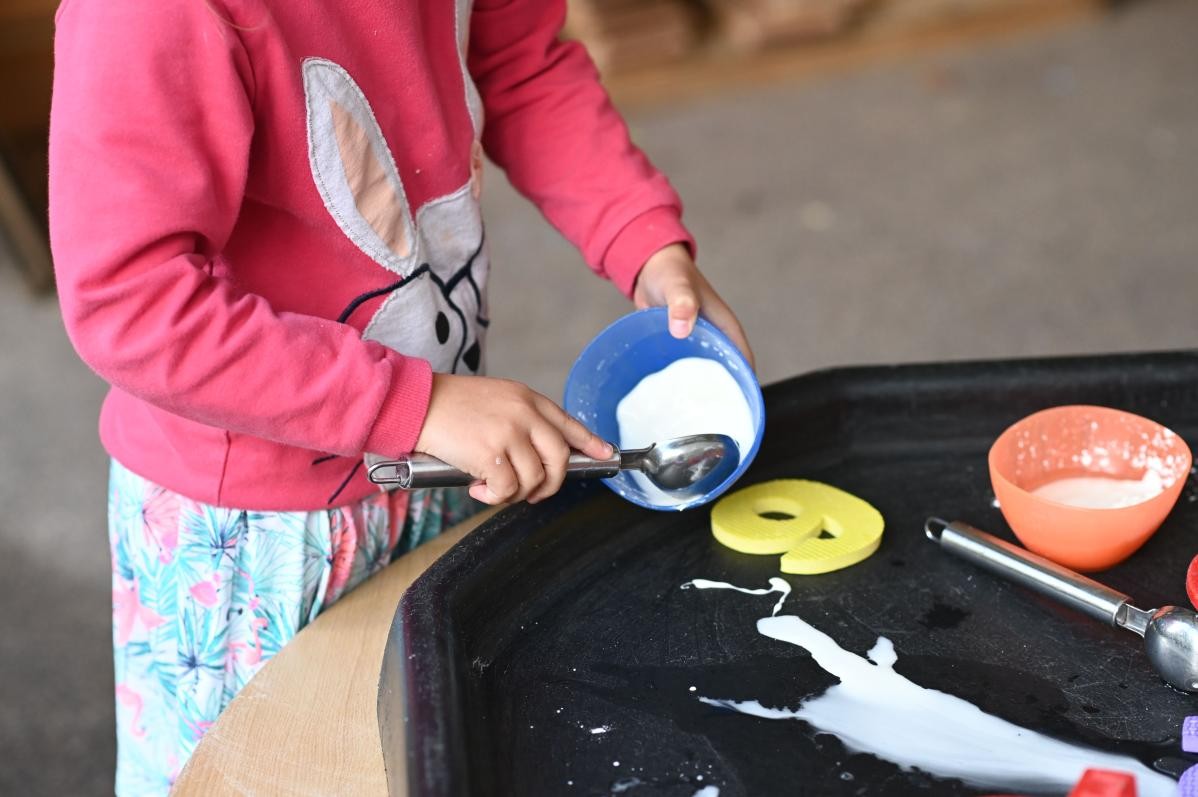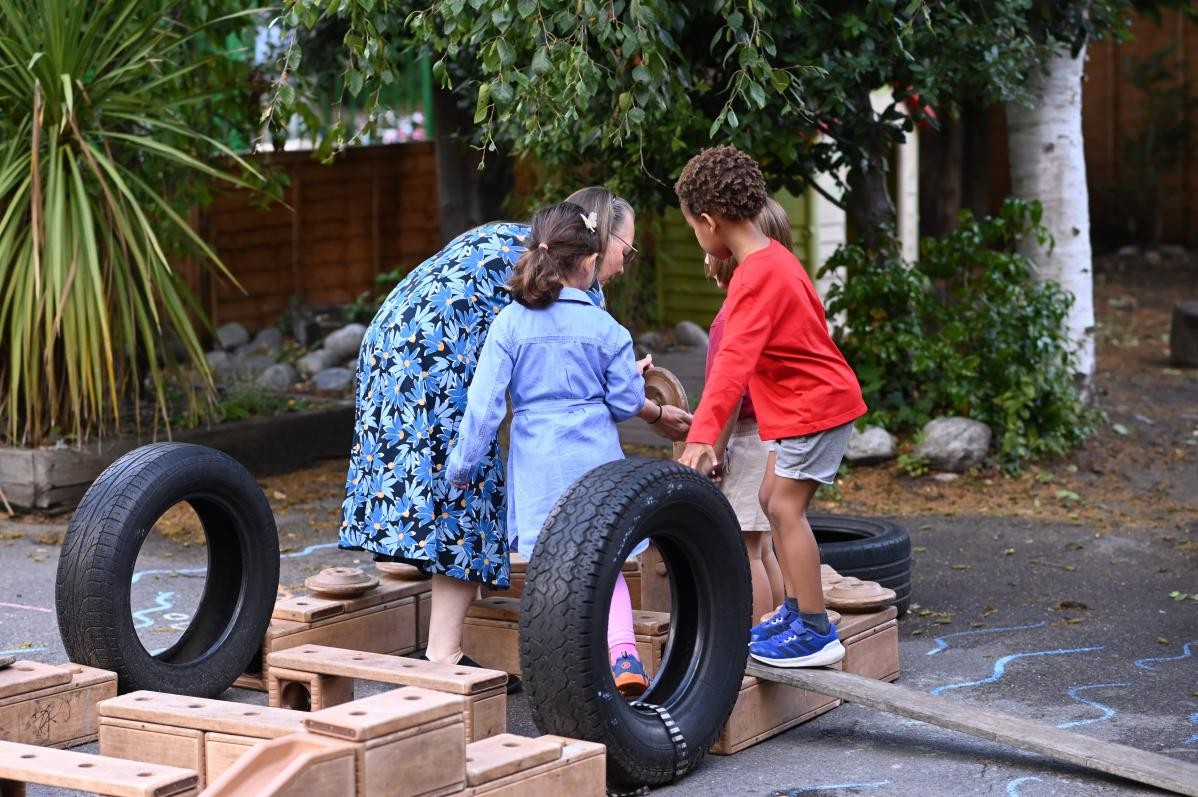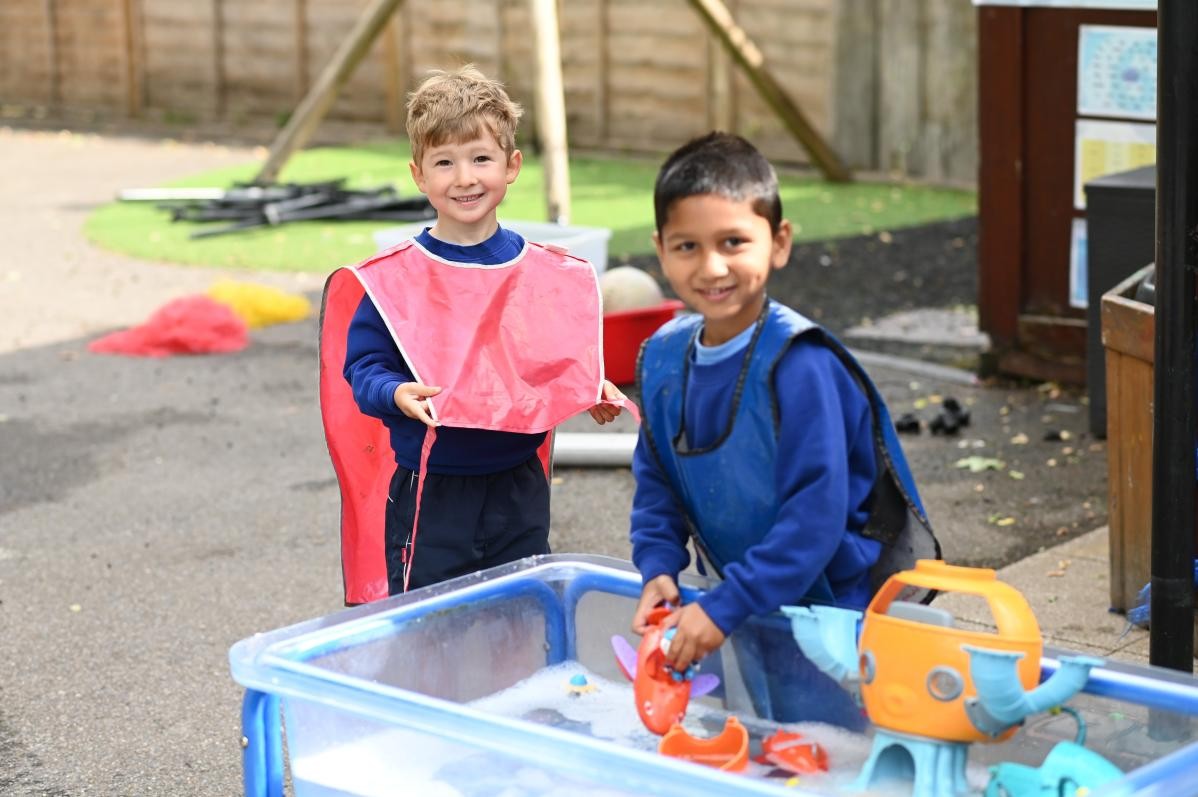EYFS
Our vision in the Early Years Foundation Stage at Latchmere Academy Trust is for children to be curious, creative and reflective thinkers who develop a love of learning in respectful collaboration with their peers.
When children enter the foundation stage, they are excited and engaged in learning by the planned opportunities designed to create awe and wonder and to ignite their curiosity.
When children enter the early years, we use ‘Development Matters’ to identify if they are on track to achieve the expected standard for communication and language. Those children who are not on track are identified and deliberately targeted to receive daily, direct teaching sessions to accelerate their acquisition of vocabulary and language structures, both as individuals, in small groups and through quality first teaching. Research based strategies are used to achieve this, including the teaching and modelling of vocabulary and language and interactive reading, for example.
The learning environments provide opportunities for high quality interactions between children and adults. Adults understand the importance of skilled interactions in developing children’s language and cognitive abilities and intentionally monitor the quantity and quality of the interactions they have with children, particularly with those children who need increased interactions to boost their language skills. Adults readily ‘tune into’ children and use research-based techniques to engage them in purposeful, high quality conversations which are inspired by interesting objects, visits or experiences.
Building warm and secure relationships between adults and children is also prioritized to enable adults to find out what children know and can do and to provide a safe emotional environment for each child, in which their interests are nurtured.
All of our practitioners receive training on child development and the communication and language curriculum, including the use of high-quality adult interactions to ensure they are well placed to develop children’s communication and language skills. We are explicit in our expectations, for example support staff ensure they get down to the children’s level and show how words and sounds are accurately formed through clear speech and face to face modelling.
Vocabulary and language structures are intentionally taught by all staff through a planned program of learning. On a daily basis, children learn carefully selected nursery rhymes and songs and share high quality non-fiction books and picture books, while adults’ model and elaborate on key vocabulary and story structures.
Within the trust, children are given the opportunity to rehearse and then demonstrate their learning through independently singing nursery rhymes, using modelled sentence stems in their talk, retelling familiar stories and showing their love of stories through ‘bothering adults for books’. They have back and forth conversations with adults and their peers, using full sentences and a rich vocabulary. Children demonstrate their understanding and use of the foundational language needed for future learning in KS1 and KS2.
They are eager to come into nursery and school to continue their learning journey each day.




